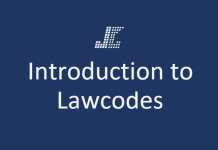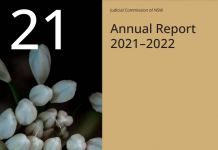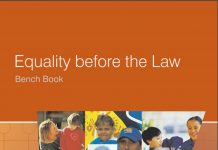The Judicial Commission of NSW is pleased to announce a new series of resources for judicial officers. The e-resource series aims to provide discrete, curated information about the skills and attributes required for judging including court craft and communication skills.
The first in the series is Trauma-informed courts: Guidance for trauma-informed judicial practices. There has been a growing understanding of trauma, including complex trauma and post-traumatic stress disorder, over the last 40 years. The increasing awareness of these principles has led to the development of a humane framework for health practitioners, and more recently, legal and other professionals and the judiciary, usually referred to as “trauma-informed practice”. Many courts have come to recognise that acknowledging and understanding the impact of trauma on court participants may lead to more successful interactions and outcomes. Courts that do not practice trauma-informed decision-making may inadvertently increase the level of trauma that people experience.
This new resource examines the adverse physical and psychological health problems in adulthood that may arise due to unresolved early-life trauma. It also looks at trauma and its impact on particular groups, such as domestic and family violence victims, victims of child sexual abuse, children in out-of-home care; First Nations people; migrants, refugees and asylum seekers; people with disabilities; and LGBTQI people. It includes practical advice on how to embed a trauma-informed practice and specific suggestions for trauma-informed judicial practices, sentencing considerations and a discussion of “trauma-informed courts” versus “solution-focussed courts”.
The resource, originally prepared as a chapter in the Equality before the law Bench Book, was authored by Commission staff and an expert Committee reviewed and provided feedback. The Committee comprised:
- Dr Michael King, Magistrate, Dandenong Drug Court and Magistrates Court, Melbourne
- Associate Professor Michael Robertson, Clinical Associate Professor, Centre for Values, Ethics & Law in Medicine (VELIM), School of Public Health, University of Sydney
- Ms Barbara O’Neill, Trauma Recovery and Practice Practitioner, The Junction Neighbourhood Centre, Sydney
Access the new series online at https://www.judcom.nsw.gov.au/trauma-informed-courts-guidance-for-trauma-informed-judicial-practices/










